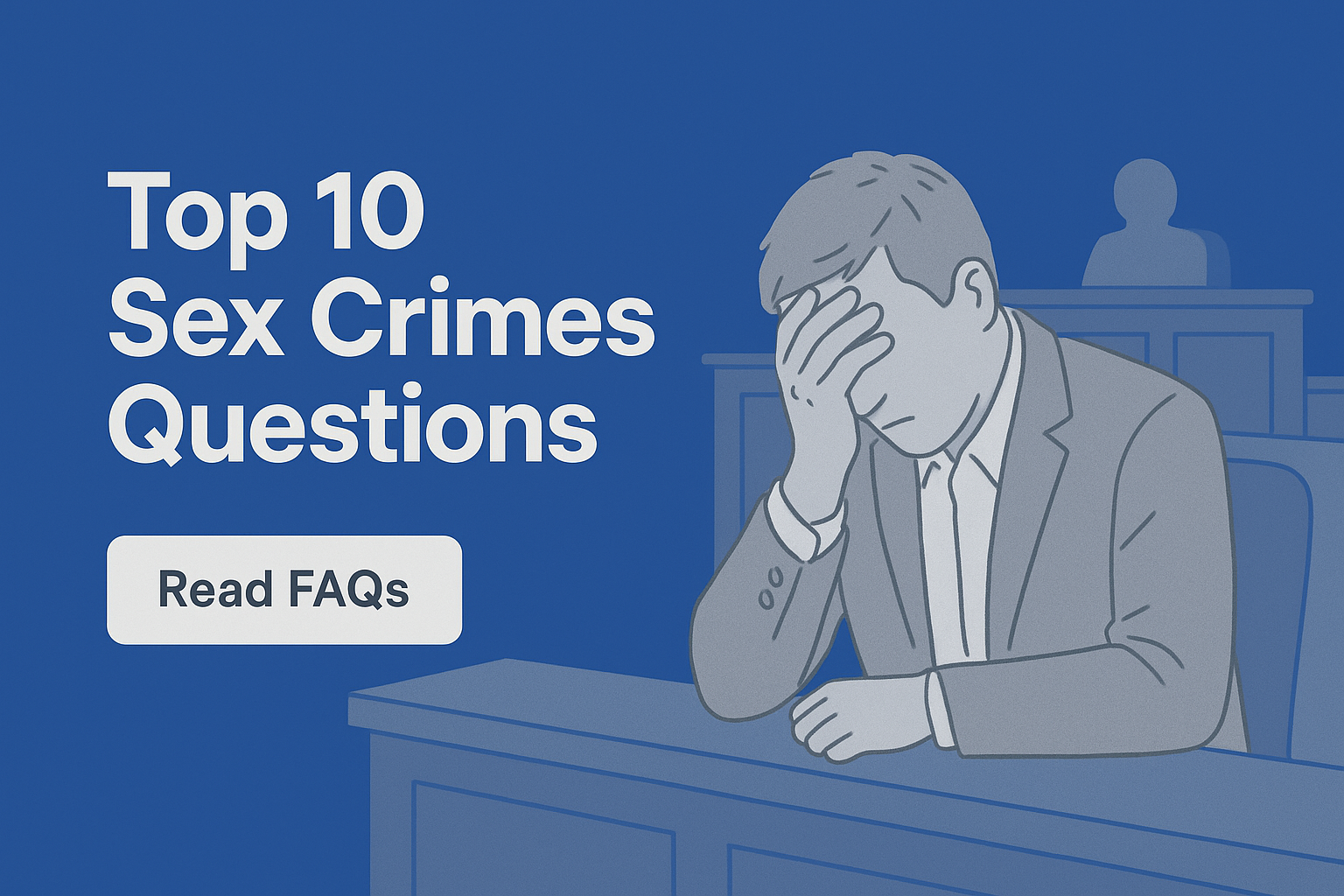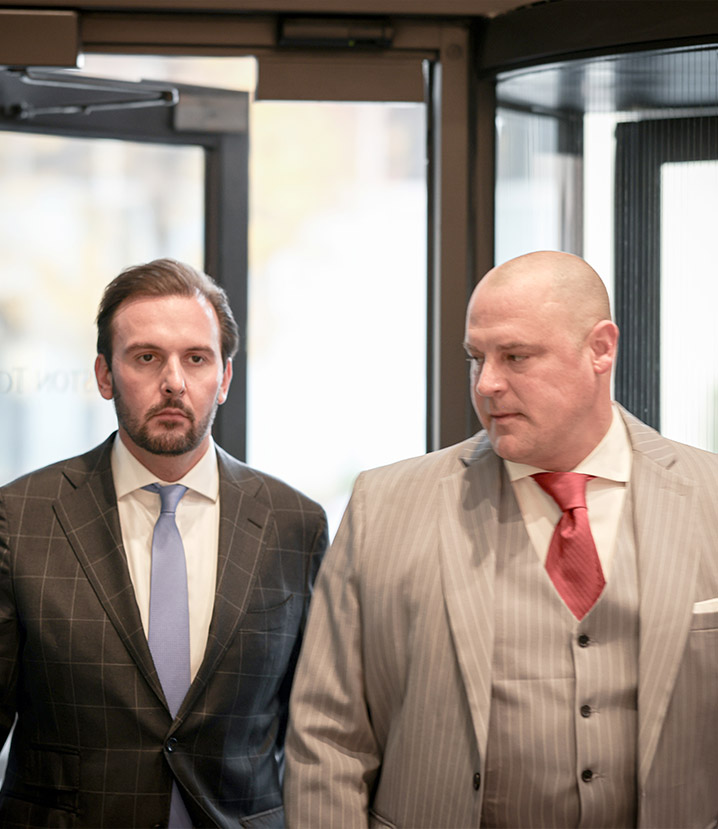Additional Links
- Criminal Lawyers With Payment Plans
- What to Do if Law Enforcement is Asking About Possible Pornographic Material on Your Computer
- What Are the Sexual Exploitation Laws Regarding Child Pornography?
- Missouri Criminal Defense Resources
- Criminal Defense Strategies
- Legal Videos
- Legal Books
- Defending Freedom Podcast

Types of Internet Sex Crimes in Missouri
Internet sex crimes encompass a wide range of offenses involving online conduct, each carrying severe legal and personal consequences. Missouri law covers various internet-based crimes, from solicitation and distribution of illegal materials to more complex offenses like trafficking. Below are some of the most common internet sex crimes prosecuted in Missouri, along with their associated penalties and statutes.

Child Pornography
There are a range of child pornography crimes under Missouri law. Child pornography crimes involve the creation, distribution, or possession of explicit materials depicting minors. Missouri law takes a strict stance on all degrees of involvement.
- Sexual Exploitation of a Minor (Creating Child Pornography): A person commits the crime of sexual exploitation of a minor if they knowingly or carelessly take photos, film, record videos, or create any obscene material involving a minor or child pornography. It is classified as a class B felony, or a class A felony if the minor was less than 14 years old. (RSMo §573.023)
- Enabling Sexual Exploitation of a Minor: A person commits the crime of enabling sexual exploitation of a minor if, through carelessness or neglect, they allow or permit any actions that break laws related to sexual exploitation, child pornography, or similar offenses listed in Missouri’s criminal code. It is a class E felony for a first offense and a class C felony for subsequent offenses. (RSMo §573.024)
- Promoting Child Pornography First Degree: A person commits the crime of promoting child pornography in the first degree if they knowingly have or share child pornography involving a child under fourteen, or any obscene material that appears to show a child under fourteen, with the intent to distribute it. It is a class B felony unless the material was promoted to a minor, in which case it is a class A felony. (RSMo §573.025)
- Promoting Obscenity Second Degree: A person commits the offense of promoting obscenity in the second degree if they knowingly engage in any of the following for financial gain:
- Distribute or possess obscene material with the intent to sell it
- Create, direct, or participate in an obscene performance for profit
- Distribute or possess material deemed pornographic for minors with the intent to sell it
- Create, direct, or participate in a performance deemed pornographic for minors for profit
- Share or make available pornographic content for minors through electronic means (e.g., internet or computer networks), specifically to a minor known by the defendant
- Promoting Child Pornography Second Degree: A person commits the crime of promoting child pornography in the second degree if they knowingly possess or distribute child pornography involving someone under eighteen, or any obscene material that appears to show someone under eighteen. This offense is a class D felony. However, if the person knowingly promotes such material directly to a minor, it is elevated to a class B felony. (RSMo §573.035)
- Possession of Child Pornography: A person commits the offense of possession of child pornography if they knowingly or carelessly possess any child pornography involving a minor under eighteen, or obscene material that appears to show a minor under eighteen. It is a class D felony. However, if the person knowingly promotes such material directly to a minor, it is elevated to a class B felony. (RSMo §573.037)
It is a class A misdemeanor unless there's a previous internet sex crimes conviction, in which case it's a class E felony. (RSMo §573.030)

Furnishing Pornographic Materials to Minors
A person commits the crime of furnishing pornographic material to minors if they knowingly or recklessly:
- Provide any material considered pornographic for minors, knowing or disregarding the likelihood that the recipient is a minor
- Produce, present, direct, or participate in any performance that is pornographic for minors, knowing or disregarding the likelihood that a minor is watching
- Make pornographic material available to a minor through a computer, electronic transfer, internet, or network, knowing that the specific recipient is a minor
This offense is generally a class A misdemeanor, but it becomes a class E felony if the person has prior sex crimes convictions. (RSMo §573.040)
Enticement of a Child
A person aged twenty-one or older commits the crime of enticement of a child if they use words, actions, or any form of electronic communication to persuade, solicit, coax, or lure someone under fifteen years old for the purpose of engaging in sexual activity.
Enticement of a child, or attempting to commit this offense, is a felony with a prison term ranging from five to thirty years. Those convicted are not eligible for parole, probation, or conditional release for at least five years. (RSMo §566.151)
Sexual Crime Conspiracies
Coordinating or planning with others to commit sexual offenses involving minors, whether or not the crime is fully executed, is punishable under Missouri conspiracy laws.
A person commits the crime of conspiracy if they agree with one or more people to commit a serious felony (Class A, B, or C felony, or any unclassified felony with a prison term over ten years) and at least one person takes action to further the agreement. Conspiracy to commit a crime is a Class C felony. (RSMo §562.014)
Promoting Online Sexual Solicitation
A person or business commits the crime of promoting online sexual solicitation if they knowingly allow their web-based classified service to host ads promoting prostitution, enticing minors for sexual acts, or promoting child trafficking after being notified of such content. (RSMo §562.014)
Nonconsensual Dissemination of Private Sexual Images
A person commits the crime of nonconsensual dissemination of private sexual images if they knowingly share an intimate image of someone else without their consent, with the intent to harass, threaten, or coerce them. To meet the criteria for this offense:
- The person depicted must be identifiable in the image or through information provided with the image
- The image must involve sexual activity or exposed intimate parts
- The image must have been obtained in a private context, where a reasonable person would expect it to remain private
- The person sharing the image must know, or should reasonably know, that the person depicted did not consent to its distribution
It is a class D felony.
Other sex crimes, such as sexual misconduct involving a child or soliciting prosecution, can also be considered internet sex crimes if they happen over electronic means.

What Happens if I'm Convicted of an Internet Sex Crime in St. Louis?
Depending on the specific internet sex crime, you could face anywhere from one year in jail to 30 years. However, there are other significant penalties that underscore how you need an experienced St. Louis internet sex crimes defense lawyer to protect your future and freedoms:
- Mandatory Sex Offender Registration: In Missouri, a conviction for most internet sex crimes results in mandatory registration as a sex offender. This requirement can extend for years, or even a lifetime, impacting your freedom and personal privacy. Sex offender registration can limit where you live, restrict travel, and require regular check-ins with local authorities, placing significant constraints on your daily life.
- Employment Restrictions: Many employers conduct background checks as part of the hiring process. A conviction for an internet sex crime can severely limit your career opportunities, particularly in fields that involve working with children, technology, or vulnerable populations. Difficulty finding stable employment can impact financial stability and limit your career growth, sometimes even years after serving your sentence.
- Housing and Community Limitations: Convicted individuals may face restrictions on where they can live, as certain areas prohibit registered offenders from residing near schools, parks, or other public spaces frequented by minors. This can make finding housing challenging, as options are often limited and subject to community opposition, affecting your ability to establish a stable home life.
- Reputational Damage and Social Stigma: A conviction for an internet sex crime can lead to significant social and reputational harm, with lasting effects on personal relationships, family dynamics, and community standing. Social stigma can lead to isolation, damaged family relationships, and ongoing scrutiny from those around you, making it challenging to move forward and rebuild your life.
- Loss of Privacy and Freedom: For some convicted individuals, regular reporting requirements, public registry listings, and restrictions on online activity mean a reduced level of personal privacy. This loss of freedom can interfere with the ability to reintegrate and live a fulfilling life, often leading to ongoing stress and limited personal agency.
At Combs Waterkotte, we understand that your future, family, and reputation are on the line. Our experienced attorneys St. Louis internet sex crimes attorneys are here to fight for the best possible outcome, helping you protect your rights and avoid these lasting consequences wherever possible.






























